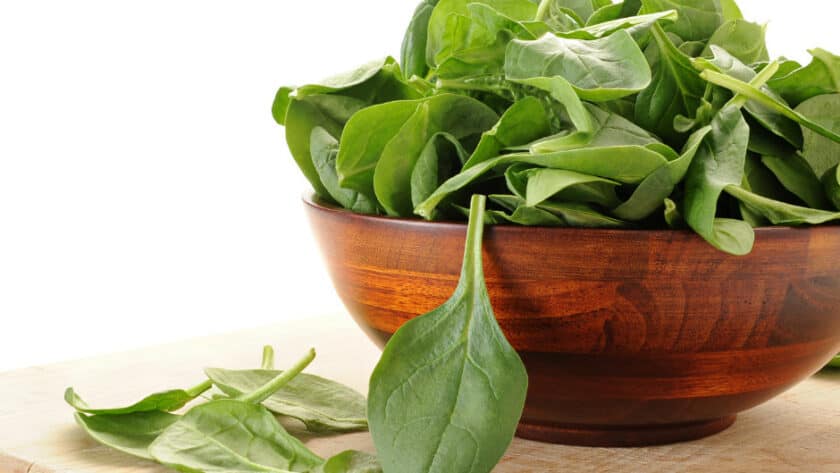In recent years, low carb diets have gained massive popularity among health-conscious individuals. They are known for their effectiveness in promoting weight loss and improving overall health. One key component of a successful low carb diet is incorporating a variety of low carb vegetables. These nutritious and delicious veggies are packed with essential vitamins, minerals, and fiber, making them an excellent choice for anyone looking to adopt a healthier lifestyle. In this ultimate guide to low carb vegetables, we will explore everything you need to know about these green powerhouses and how to make the most of them in your diet.
Understanding Low Carb Diets
The Science Behind Low Carb Diets
Before delving into the world of low carb vegetables, it’s important to understand the science behind low carb diets. These diets restrict the intake of carbohydrates, forcing the body to burn stored fat for fuel instead of relying on glucose. This metabolic state is called ketosis and is the basis of many popular low carb diets like the ketogenic diet.
When you consume a low carb diet, your body undergoes a remarkable transformation. By limiting the intake of carbohydrates, you effectively decrease the levels of insulin in your body. Insulin is a hormone that helps regulate blood sugar levels, but it also promotes fat storage. By reducing insulin levels, your body becomes more efficient at burning fat for energy, leading to weight loss and improved body composition.
Benefits of Low Carb Diets
Low carb diets offer numerous benefits beyond just weight loss. They can help regulate blood sugar levels, improve heart health, reduce inflammation, and even boost mental clarity. By incorporating low carb vegetables into your meals, you are not only satisfying your taste buds but also nourishing your body with essential nutrients.
One of the key benefits of low carb diets is their ability to regulate blood sugar levels. When you consume carbohydrates, they are broken down into glucose, which enters the bloodstream and causes a spike in blood sugar levels. This spike triggers the release of insulin to help transport the glucose into cells for energy. However, in individuals with insulin resistance or diabetes, this process becomes impaired, leading to chronically elevated blood sugar levels. By reducing carbohydrate intake, low carb diets can help stabilize blood sugar levels and improve insulin sensitivity, making them an effective dietary approach for managing diabetes and preventing complications.
Identifying Low Carb Vegetables
Common Low Carb Vegetables
When it comes to low carb vegetables, some varieties are more well-known than others. Leafy greens like spinach, kale, and lettuce are excellent options with negligible carb content. Not only are these greens low in carbs, but they are also high in vitamins and minerals, making them a nutritious choice for any meal. Spinach, for example, is not only low in carbs but also rich in iron, calcium, and vitamin A, which are essential for maintaining healthy bones and eyesight.
Other veggies like broccoli, cauliflower, and zucchini also fall into the low carb category. These versatile vegetables can be enjoyed in a variety of ways, from steaming and roasting to grilling and stir-frying. Broccoli, in particular, is not only low in carbs but also a great source of fiber, vitamin C, and antioxidants, which help boost your immune system and protect against chronic diseases.
Get creative and experiment with different flavors and textures to spruce up your meals. Try adding some sautéed kale to your omelet or tossing roasted cauliflower into a salad for an extra crunch. The possibilities are endless when it comes to incorporating these common low carb vegetables into your diet.
Surprising Low Carb Vegetables You Didn’t Know About
Did you know that avocados, tomatoes, and bell peppers are considered low carb vegetables? These vegetables, although technically classified as fruits, are packed with nutrients and healthy fats while still being low in carbohydrates. Avocados, for instance, are not only low in carbs but also high in monounsaturated fats, which are beneficial for heart health. They are also a good source of fiber, potassium, and vitamin K.
Tomatoes, another surprising low carb vegetable, are not only delicious but also rich in vitamins A and C. They are also a great source of lycopene, an antioxidant that has been linked to a reduced risk of certain types of cancer. Bell peppers, with their vibrant colors and crisp texture, are not only low in carbs but also high in vitamin C and other antioxidants, which help protect your cells from damage.
Don’t be afraid to explore beyond the usual suspects and incorporate these flavorful options into your diet. Slice some avocado onto your salad, add diced tomatoes to your omelet, or stuff bell peppers with a delicious low carb filling. These surprising low carb vegetables can add a burst of flavor and nutrition to your meals, making them a great addition to any low carb diet.
Incorporating Low Carb Vegetables into Your Diet
Meal Planning with Low Carb Vegetables
Meal planning is key to successfully incorporating low carb vegetables into your diet. Start by making a list of your favorite low carb veggies and brainstorming different ways to incorporate them into your meals. From stir-fries to salads and soups, the options are endless. Planning your meals in advance will ensure that you always have nutritious and delicious low carb options at your fingertips.
When it comes to meal planning, it’s important to consider the nutritional value of the low carb vegetables you choose. For example, leafy greens like spinach and kale are packed with vitamins A, C, and K, as well as iron and calcium. These nutrient powerhouses can be added to salads, sautéed as a side dish, or blended into a green smoothie for a refreshing boost of nutrients.
Another low carb vegetable that deserves a special mention is broccoli. Not only is it low in carbs, but it’s also high in fiber, which aids in digestion and helps you feel fuller for longer. Broccoli can be steamed, roasted, or even added to casseroles for an extra nutritional punch.
Quick and Easy Low Carb Vegetable Recipes
Need some inspiration for quick and easy low carb vegetable recipes? Consider whipping up a delicious cauliflower rice stir-fry or a refreshing cucumber and tomato salad. Don’t forget to experiment with herbs, spices, and healthy dressings to enhance the flavor profile of your dishes.
One creative way to incorporate low carb vegetables into your meals is by making zucchini noodles, also known as “zoodles.” These noodles are a fantastic alternative to traditional pasta and can be used in a variety of dishes. Simply spiralize your zucchini, sauté it in a little olive oil, and top it with your favorite low carb sauce or pesto. It’s a delicious and satisfying way to enjoy a pasta-like dish without the guilt.
For a quick and easy side dish, try roasting a medley of low carb vegetables like bell peppers, asparagus, and Brussels sprouts. Toss them in olive oil, sprinkle with your favorite seasonings, and roast in the oven until they are tender and slightly caramelized. This simple yet flavorful dish will complement any main course and add a burst of color to your plate.
Growing Your Own Low Carb Vegetables
Best Low Carb Vegetables to Grow at Home
Are you an avid gardener or simply interested in growing your own food? Certain low carb vegetables are particularly well-suited for home gardens. Consider planting leafy greens like spinach, Swiss chard, and arugula, as well as versatile veggies like green beans and radishes. By growing your own low carb vegetables, you not only have access to fresh produce but also get a sense of satisfaction from nurturing your plants from seed to plate.
Tips for Cultivating Low Carb Vegetables
Gardening may seem intimidating for beginners, but fear not! Cultivating low carb vegetables can be a rewarding experience with a few tips and tricks. Ensure your plants receive adequate sunlight, water, and nutrients. Consider companion planting to maximize space and deter pests. With a little patience and care, your garden will flourish, providing you with a bountiful harvest of nourishing low carb vegetables.
Overcoming Challenges in a Low Carb Diet
Dealing with Cravings
Cravings can be tough to overcome when following a low carb diet. However, with some strategies, you can keep those cravings at bay. Opt for low carb snacks like nuts, seeds, or cucumber slices with a hummus dip. Indulge in dark chocolate in moderation or whip up a delicious low carb dessert using natural sweeteners like stevia or monk fruit.
Staying Motivated on a Low Carb Diet
Staying motivated is crucial to long-term success on a low carb diet. Surround yourself with a supportive community, read success stories, and track your progress. Remember, incorporating low carb vegetables into your meals adds variety, flavors, and essential nutrients, making your healthy eating journey even more enjoyable.
Celebrate the Bounty of Low Carb Vegetables
Low carb vegetables are a fantastic addition to any diet. They offer a wide range of health benefits and can be easily incorporated into various meals and recipes. Whether you’re a seasoned low carb enthusiast or just starting on your wellness journey, embrace these vibrant veggies and revel in their deliciousness. With the ultimate guide to low carb vegetables at your disposal, you have the knowledge and inspiration to make every meal a nutritious and satisfying one.





